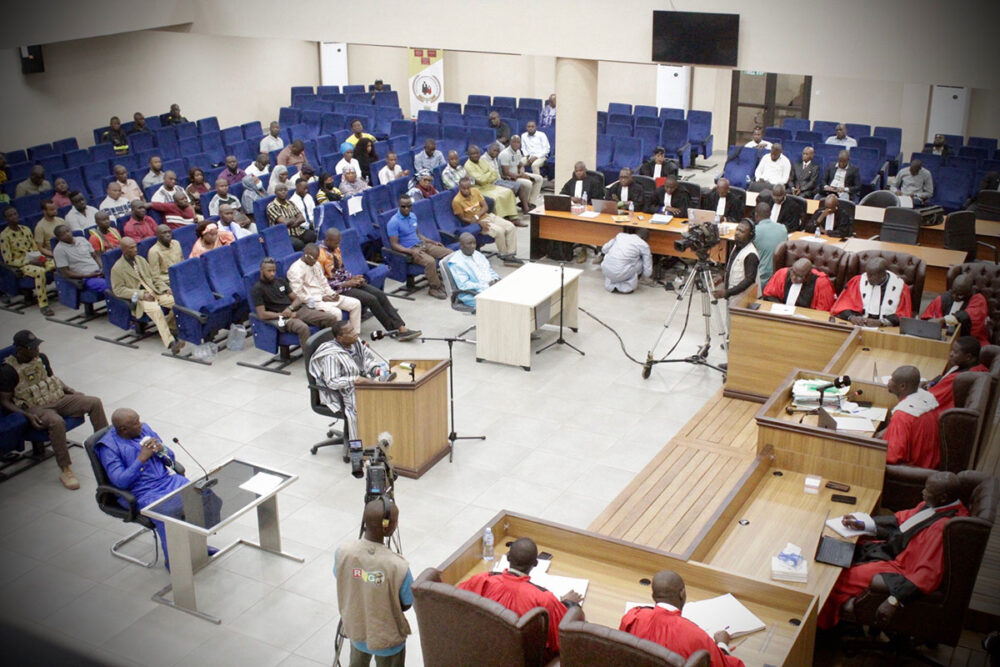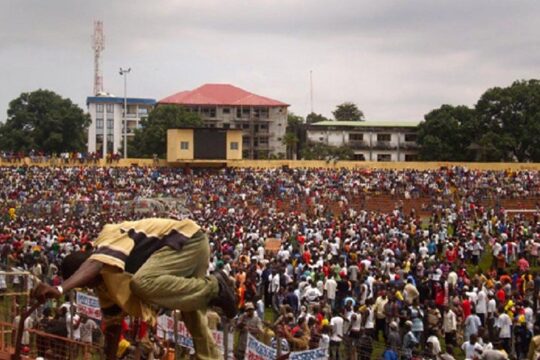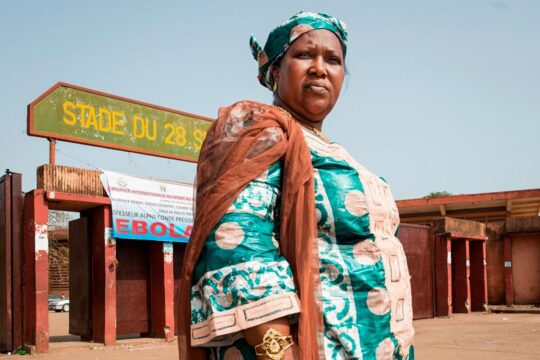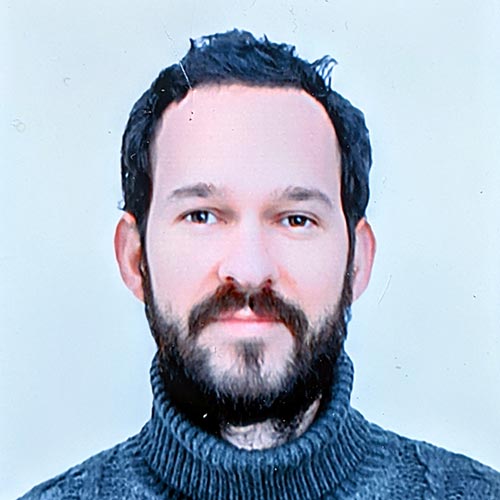Three accused are seated facing the presiding judge, a good distance apart. This is the first time they have taken the stand in several months. Some of them have been sitting in the dock for over a year. They are Moussa Dadis Camara, who was the country’s president in 2009, his aide-de-camp Aboubacar Diakité (“Toumba”) and Marcel Guilavogui, a protégé of the first two at the time of the events. The three men are suspected of having played a major role in organizing and carrying out the massacre of over 150 demonstrators at an opposition rally at Conakry stadium on September 28, 2009. During their previous appearances, they all maintained their innocence and accused each other.
“Before we start, confrontation doesn't mean we're going to take up all the debates,” warned court president Ibrahima Sory II Tounkara on the morning of Monday April 15. “The court has chosen a few people between whom there will be a confrontation. Specific points will be debated.”
The first questions concern the presidential guard and regiment accused of having violently crushed the stadium rally. The court president wants to know who was in charge of these soldiers. Dadis and Toumba begin a verbal ping-pong match. For Dadis, Toumba was in command, but Toumba accused Dadis. “You were our dear father of the nation. Really, don't lower yourself to that level, take your responsibility, Mr. President!” he retorted. Guilavogui sided with Toumba and made his point: “I ask President Dadis to be couragous. He was father of the nation, commander-in-chief of the armed forces, head of a military transition.” Everyone stuck to their guns, and this confrontation, like the others that followed, failed to bring any new elements to the table. There was no major about-turn, but the attitudes of Guilavogui and Toumba have never seemed so close, their versions so concordant. On this first day, they showed unity.
Alliance strategies among the accused
Alpha Amadou DS Bah, coordinator of the victims’ lawyers’ collective, says he is disappointed by the confrontation, which has not helped bring out the truth. In his eyes, it is obvious that Toumba and Guilavogui had been talking to each other. Toumba himself repeated during the hearing that he had no problem with Guilavogui. During his interrogation, however, Dadis’s former aide-de-camp had pointed the finger at Guilavogui’s role in the September 28, 2009 violence. This time, he toned down his testimony. “Toumba went back on crucial information he gave at the outset,” Bah stressed. “With regard to the attack on the political leaders [at the stadium], for example, he went so far as to say that he wasn’t sure of the threat posed by Guilavogui.” Bah is therefore convinced that the two defendants put a strategy in place to protect each other, “to try and save each other in this case”.
The duo remained on the stand for most of the day. Other defendants -- Moussa Tiégboro Camara, former minister in charge of the fight against drugs and organized crime, and Blaise Goumou, a gendarmerie officer – joined them. With Toumba and Guilavogui making common cause, a larger group emerged, comprising Dadis, Goumou and Tiégboro. One would have had to add Pivi if he wasn't still on the run. These four defendants are the same ones that got out of the central prison last November before being caught again, except for Pivi. During the hearings, they made statements tending to deny former president Dadis’s responsibility in the stadium massacre.
In the end, there is nothing surprising about these confrontations. This split among the defendants occurred several months ago, after Guilavogui took the stand for the second time in July 2023. Promising to “tell the truth”, he asked to be heard again. He then changed his story, acknowledging that he had been at the stadium, but insisting that he had committed no crime there. If Guilavogui protected Dadis when he appeared in court in October 2022, this time he changed his tune. At least, that’s how his testimony is perceived in the ex-president's camp. Guilavogui now accuses Dadis of having ordered the massacre. Along with Toumba, he is the only one to accuse the former head of state.
Strict policing of the hearing
Pépé Antoine Lamah, one of Dadis' lawyers, has a very different view of the confrontation involving his client. According to him, Dadis emerged stronger from this phase of the trial. Toumba and Guilavogui said nothing new and remained faithful to their version, which did not stand up to Dadis’s arguments,” asserted the lawyer.
As announced by the court president, the points discussed are very precise during the confrontations, and when a person on the stand strays from the subject of the discussion, he or she is quickly called to order. Lawyers and the public prosecutor are repeatedly reprimanded when the exchanges start to resemble an interrogation: “You know, we mustn't confuse things. We have already finished with the interrogations, it is on the points of divergence that these discussions focus. And during the confrontation, both people must be asked the same question. You can’t put one question to one person and a different question to the other person.”
The court moves quickly, with some exchanges lasting just a handful of minutes. On April 17, half a dozen confrontations took place. In mid-afternoon, the court president called several victims to the stand, but none came. “Mr. President, these two ladies were heard before in camera,” said the prosecutor, taking the stand. “Now it’s a question of knowing whether the confrontation phase concerning them will also be in camera.” Such a decision would “protect their identity”, argued Halimatou Camara, lawyer for the civil parties. The court agreed. This time, the victims turned up, but it is possible that some of them will refuse to return to court, Bah warned, because since the start of this trial, no mechanism has been put in place to really protect them. “The order has been issued, but no measures have been envisaged. With Pivi still at large, the victims have good reason not to come face to face with these defendants,” the lawyer added.
A year and a half after the trial opened, it seems to be drawing to a close. Once the confrontations have been completed, it will be time for the closing arguments, followed by the verdict. Even if there have been several delays and unexpected postponements, Bah believes the case should be over before the judicial vacation in July.








